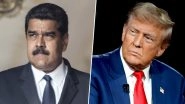Hong Kong [China], Sept 18 (ANI): President Xi Jinping once uttered the ironic words, "The aim of liberating thought is to better standardize thought". Of course, what he really wanted to say was that he wanted all thought in China to be unified under his purview.
"Liberating thought" would result in a greater diversity of opinion, which is actually the opposite of what Xi wants. Naturally, he cannot admit that outright - hence the way he couched his statement - but the truth is that Xi wants to control everyone's thoughts within China, and increasingly he feels the need to do so outside China as well.
Domestically, take the case of Fan Bingbing, the most popular actress in China with appearances in both Chinese and Western movies as well as endorsements for major luxury brands. She has some 63 million Weibo followers, but Fan has fallen afoul of an official campaign to reduce the influence of celebrities as well as of an apparent case of tax evasion.
The Communist Party of China (CPC) has an ideological agenda to promote, and celebrity-driven stars do not fit into that calculus. Indeed, in 2014, Xi warned artists who "indulge in kitsch, are of low taste and have gradually turned their work into cash cows or into ecstasy pills for sensual stimulation".
Sometime in June, Fan just disappeared from the public scene, presumably under arrest, this being a perfect example of "killing the chicken to scare the monkey", in other words to frighten others. The truth is that the CPC does not want to share the stage with any other pretender.
China wants to mold the way people think overseas too, especially their impression of the nation. Little surprise then that it has emerged that China is spending more than AUD500,000 on an advertising campaign to promote itself in Australia via China Global Television Network (CGTN), the foreign branch of state-owned broadcaster CCTV.
Australian citizens have witnessed advertising billboards spring up around the country, encouraging people to tune in to this channel. To slightly change Xi's quote, "The aim.is to better standardize thought". Indeed, when CGTN was rebranded last year, Xi defined its mission as "telling China stories well".
CGTN hires Western news anchor and it has tried to distance itself from the CCTV brand. However, CGTN is state-owned to the core, and its mission is to imbue the non-Chinese public with pro-China sentiments.
China has created numerous problems for itself in Australia, with many hugely concerned at its efforts to sway politicians and the business community. This "spin" campaign is thus designed to help redress what Beijing sees as an unfair imbalance by showing its softer side.
Then again, this campaign is going to have a hard time achieving success when China simultaneously shows its true values by immediately blocking the ABC website after Canberra prevented the Chinese Huawei and ZTE telecom giants from bidding in a tender to create a 5G mobile network in Australia.
In a similar case, the Indian government excluded Huawei and ZTE from participating in 5G network technology-based trials. The Chinese paper Global Times railed against this decision, complaining "Chinese telecom equipment makers can't passively accept their exclusion by India from its 5G trials, a move that is likely to result in a retrogression of bilateral technology cooperation".
It added that the decision "will set off a chain reaction and have a negative impact on China's investment flows to India". The writer continued that it "means India's policy of attracting foreign investment is highly situational and arbitrary".
However, such threats are toothless and simply reflect basic Chinese scaremongering tactics. Chinese foreign direct investment in India amounted to just USD198 million in 2016/17, the global giant coming in behind the likes of the British Virgin Islands, Spain and Cyprus.
Or let us look at it another way. Would China allow an Australian, Indian or American telecommunications company to invest and manage mobile networks in China, where there would be a potential risk of espionage? Of course not! China strictly controls such strategic technologies, so this is very much a case of double standards, China demanding what it would never conceive of giving itself.
Indeed, China is notorious for its double standards, adhering to or snubbing international law and treaties at will, depending upon what is most advantageous to its own interests. The South China Sea and China's noncompliance with the United Nations Convention on the Law of the Sea is one obvious example.
Free speech and freedom of thought are anathema to the CPC, which exercises absolute control over the media, internet and all social media. Indeed, censorship and propaganda are mainstays keeping the CPC in power. This in itself is very telling. The party needs to wield these weapons because it surely realizes that people would ultimately have no loyalty to the CPC if they had greater freedoms.
Google is reportedly building a prototype system where Chinese users of Google would have their search data tied to their mobile phone numbers in order to allow the authorities to track individuals' predilections. This so-called Dragonfly app was revealed by a whistleblower last month.
Google has not confirmed whether Dragonfly exists, only admitting that it is performing "exploratory" research for a service in China. However, the issue is serious enough that a group of House representatives in the USA asked Google about its plans, since Congress has "a responsibility to ensure that American companies are not perpetuating human rights abuses abroad".
And human rights abuses are definitely occurring in China. Whilst China is quick to play the "racist card" against anyone critical of its subjugation of culture and religion, this is again an abhorrent case of double standards. In relation to minority cultures, Xi said in a 2014 speech that "we shouldn't continue with what is rotten but rather discard the dross and select the essence; weed out the chaff to bring forth new roots".
Xi is doing precisely that in Xinjiang, imprisoning without trial an estimated one million Uighur Muslims in political re-education camps that echo what occurred in the Mao era. There the inmates are endlessly brainwashed in party ideology, taught to praise Xi and criticize their own religion. Xi is gradually erasing a unique culture there.
China complains bitterly about others "hurting the feelings of the Chinese people", but apparently the Han-dominated government has no concern for the feelings of its own citizens.
The problem is not just that China is abusing its own people, but that attitude is likely to brush off on client states such as Cambodia, Laos, the Maldives, Pakistan and Zambia. China's surveillance and arbitrary arrest of people is spreading domestically, plus it foreshadows a loss of societal freedoms in these other countries.
The Lowy Institute in Australia created the Asia Power Index to measure the relative influence of regional countries. Its researchers concluded, "China, the emerging superpower, is rapidly closing in on the United States.Whereas US commitments are spread across the globe, China can concentrate its resources in Asia. The country holds a top-two position across all but one measure and ranks first in economic relationships, diplomatic influence and future trends."
The Lowy Institute authors continued, ".China and the United States are now firmly established as peer competitors in Asia. The power differential between these two superpowers and every other country in the Index is substantial."
Unfortunately, as China has emerged on the global stage as a peer competitor to the USA, there has been growing evidence of overweening pride and a tendency to bully smaller nations.
An honest insight came from Luo Jianbo, head of the Foreign Policy Centre at the Central Party School, when he wrote in an essay last year about a "precocious yet definitely immature sense of national greatness". Such feelings of grandiosity and entitlement are being fueled by initiatives such as Xi's ambitious One Belt, One Road initiative. Luo wrote of the need to have "confidence without arrogance, pride without conceit".
Just last week, the Sydney Morning Herald gave examples of such arrogant behavior directed against Australia. It gave the instance in 2013 of China's then finance minister Lou Jiwei asking Australian treasurer Joe Hockey, "Why won't you let me buy Rio Tinto?"
Hockey, taken aback, had the presence of mind to reply, "That's fine - as long as you'll let Qantas buy China Southern." Unabashed, Lou then proceeded, "All I want is to buy 15% of your top 200 listed companies."
This is just one example of many instances where Chinese impoliteness, or arrogance, has rubbed others up the wrong way. Chinese politicians or businessmen threaten and cajole, sometimes promising to exercise the Chinese diaspora to sway public opinion, or to withdraw economic investment, to get their own way.
As another example, at the annual Pacific Islands Forum earlier this month, the Chinese delegate Du Qiwen stormed out of a meeting after he was not permitted to address the session. The host, Nauru President Baron Waqa, said, "The Chinese demanded to be heard...He insisted and was very insolent about it, and created a big fuss and held up the meeting of leaders for a good number of minutes when he was only an official. So maybe because he was from a big country he wanted to bully us."
China's high-browed attitude was reflected in a telling 2010 statement by then foreign affairs minister Yang Jiechi. Whilst speaking to his Singaporean counterpart, Yang commented, "China is a big country and other countries are small countries, and that's just a fact."
No matter how much China talks of "win-win cooperation", by now a worn-out and meaningless cliche, there is really only going to be one winner in China's estimation.(ANI)
(The above story is verified and authored by ANI staff, ANI is South Asia's leading multimedia news agency with over 100 bureaus in India, South Asia and across the globe. ANI brings the latest news on Politics and Current Affairs in India & around the World, Sports, Health, Fitness, Entertainment, & News. The views appearing in the above post do not reflect the opinions of LatestLY)













 Quickly
Quickly


